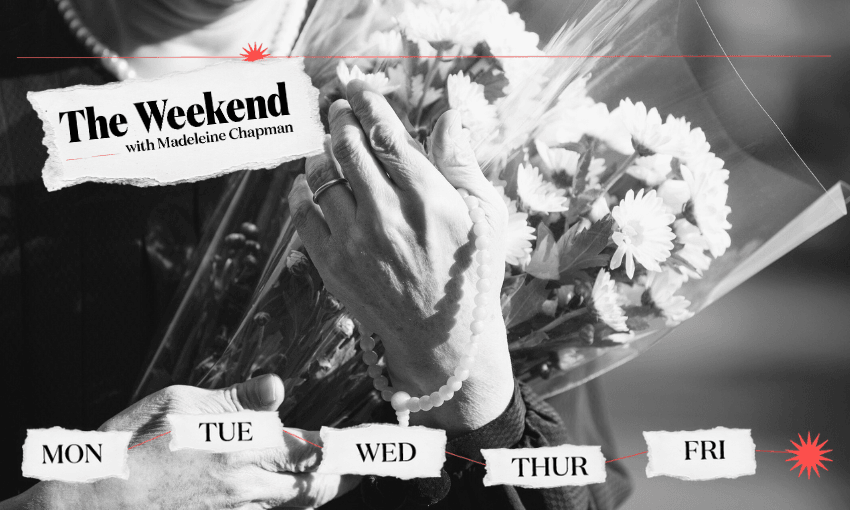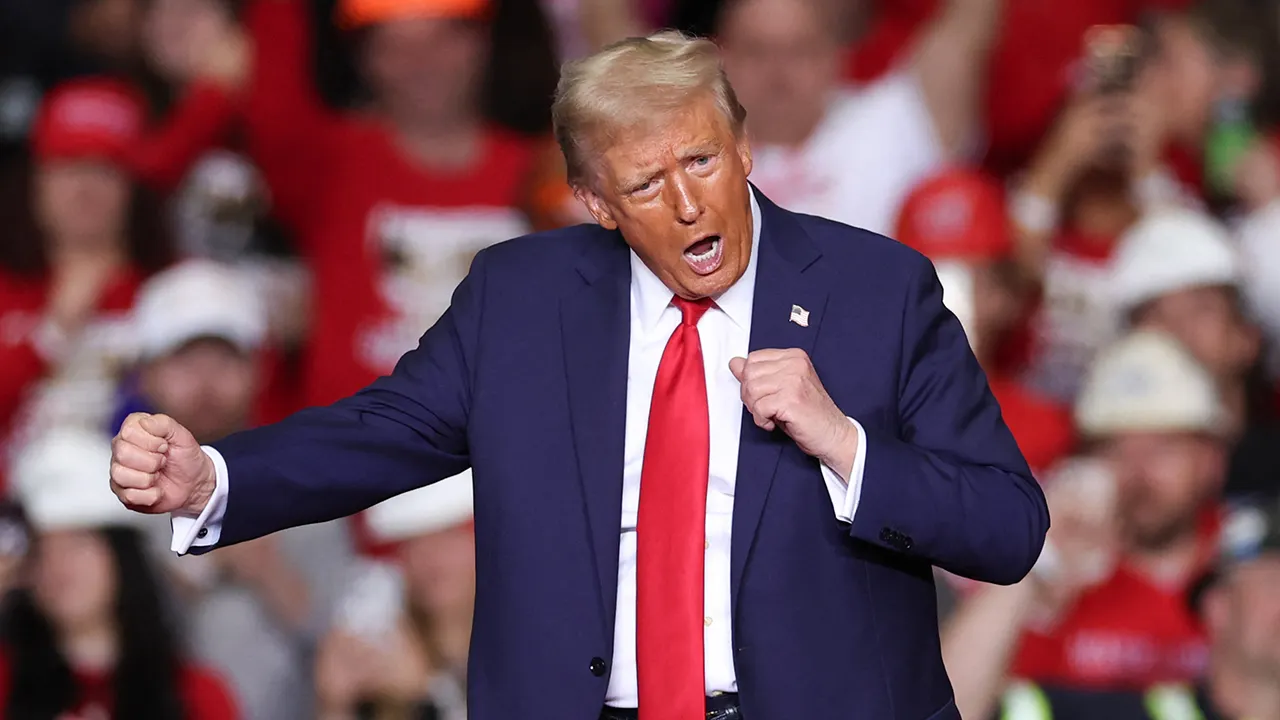Chuck Schumer could barely contain his excitement.
It was Tuesday afternoon, two days after Joe Biden had withdrawn from the US election, and Vice President Kamala Harris had just secured enough Democratic support to win the party’s nomination to run for the White House.
“President Biden’s selfless decision has given the Democratic Party the opportunity to unite behind a new nominee, and boy oh boy, are we enthusiastic!” the Senate Majority Leader told reporters at the US Capitol, as he began clapping emphatically.
“It’s a happy day. What can I say?”
It was certainly a happier outlook than the previous few weeks had been, when Biden’s candidacy plunged into crisis after his devastating debate performance against Donald Trump in Atlanta.
Vice President Kamala Harris speaks following a meeting with Israeli Prime Minister Benjamin Netanyahu.Credit: AP
Indeed, 10 days before his press conference endorsing Harris, a far more sombre Schumer had driven to Delaware to meet the president in person at his Rehoboth Beach home amid growing angst about Biden’s fitness for office.
Armed with the concerns of his members and polls showing the path to victory against Trump was all but gone, Schumer decided to make a last-ditch effort to convince his old friend that Biden’s legacy, the Congress and the country was at risk if he stayed in the race.
Biden, however, seemed as defiant as ever to dig in. But just over one week later, as the polls worsened, donations began to freeze and the defections continued, America’s 81-year-old president announced he would stand down and pass the torch to his 59-year-old deputy.
The political shift was swift and seismic. One minute, Democrats had been in despair and disarray over their ability to fend off a seemingly unstoppable Trump.

Vice President Kamala Harris speaks at a college sorority annual convention in Dallas.Credit: AP
The next minute they were united and hopeful about their chances in November, coalescing around Harris to ensure she had the delegates she needed to win the party’s nomination at next month’s Democratic National Convention.
Within 36 hours, Harris had amassed $US126 million ($192 million) in donations; 100,000 new volunteers had signed up to work on her campaign; and almost 40,000 new voters had registered for the November poll, representing the largest number of registrations in a 48-hour period this election cycle.
Even the internet had blown up with endearing memes of the vice president’s most cringy quotes (“You think you just fell out of a coconut tree?“) or videos of Harris dancing to Charli XCX songs filtered through the UK pop star’s lime-green Brat branding.
“I don’t think you can overstate the level of enthusiasm and excitement about Kamala Harris right now,” said Ashley Etienne, a former senior adviser for House speaker Nancy Pelosi.
“It is like something we’ve never seen before. I was on the ’08 campaign, and we thought people were on fire for Barack Obama – but they’re on fire for Kamala Harris.”
Trump has also been forced to pivot. For the past 12 months, the incendiary Republican has monopolised headlines through his court cases, his domination of the presidential primary elections, and most recently, the failed assassination attempt against him, which galvanised Republicans to unite behind him at last week’s national convention.
This week, however, Trump has been crowded out of the headlines and has had to readjust his campaign strategy, which until now centred solely on an octogenarian and his cognitive decline.
“I’ve never seen a turnaround like this,” the former president told supporters at a rally in North Carolina this week as he road-tested new attack lines for the vice president, from “Lyin’ Kamala” to “Biden’s Border Czar’ and “Radical Left Lunatic.”
“Three weeks ago, four weeks ago, she was the worst politician in America. Now they’re saying: isn’t it amazing? Look at her, she’s so beautiful, she’s so magnificent…”
After weeks of anxiety, Democrats believe they now have a candidate who will be able to draw a contrast with Trump and make the election a referendum on the former president and his “MAGA Republicans”.
Loading
She’s a prosecutor, he’s a convicted felon. She wants women to have federal abortion access; he does not. She’s a champion of democracy; he has authoritarian tendencies. She’s 59; he’s 78.
But some party members and donors still have doubts, citing polls showing Harris’ approval rating, which is currently hovering around 37 per cent according to FiveThirtyEight, has long been on a par with Biden’s.
Lawyer and Biden mega-donor John Morgan, for instance, said he would not be supporting the Harris campaign, noting on X: “You have to be enthusiastic or hoping for a political appointment to be asking friends for money. I am neither.
“You can keep my million,” he added. “And good luck.”
Others also recall her ill-fated bid to run for the 2020 Democratic presidential nomination, which similarly began with plenty of hype, only to result in the former California attorney-general dropping out before the first primary contest even took place.
After an initial and much-rehearsed “viral moment” – in which Harris called out Biden on the issue of race and segregation during a candidates’ debate in 2019 – the senator struggled to articulate what she stood for.
She has flip-flopped on issues such as Medicare For All, couldn’t defend her past positions as a hard-nosed prosecutor (such as her opposition to the legalisation of marijuana, which she now supports) and there have been numerous stories about her dysfunctional office, including a leaked letter by a staffer, which ended up in The New York Times during her presidential nomination bid.
“This is my third presidential campaign and I have never seen an organisation treat its staff so poorly,” it said.
South Carolina voter Chris Salley remembers this period well. Before her campaign fizzled, Harris had been his top pick for the nomination that year, in a race that also included Biden, progressive Senator Bernie Sanders and Transport Secretary Pete Buttigieg.

Senator Bernie Sanders, centre, gestures towards Joe Biden as Kamala Harris talks during a debate in 2019.Credit: AP
But Salley, 31, quit the Democratic Party last October, outraged by the Biden-Harris administration’s handling of the war in Gaza and frustrated that the president was running for another term, rather than passing the torch to a new generational leader.
Eight months later, he says he’s pleased that Biden has finally stood down, but is waiting to see if there’s a “concrete change in direction” on Gaza before he votes for Harris over third-party candidate Cornell West, a progressive activist and theologian.
He also reckons that while the vice president has a better chance of beating Trump, there is likely to be a torrent of “misogynoir” – the term coined by African-American feminist scholar Moya Bailey to describe the sexism and racism experienced by black women.
“I’m pretty scared as a black man, who has a lot of black women around me who I love, because you know it’s coming,” says Salley, the former chair of the Anderson County Democratic Party in South Carolina.
“You’ve already seen some of the Republicans describe her as a DEI (diversity, equity and inclusion) pick, or some Republicans say she slept her way to the top. Those stumbling blocks are still very present in our country.”
Other Republicans, however, have warned that such attacks could backfire, particularly among the demographic Trump needs to woo the most: suburban women in swing states such as Pennsylvania, Wisconsin and Michigan.
At a closed-door meeting on Tuesday, for example, National Republican Congressional Committee chairman Richard Hudson urged his colleagues to stick to criticising Harris for her role in “failed” Biden-Harris administration policies: the crisis at the US border, cost of living pressures in America, crime and community safety.
Loading
“This election will be about policies and not personalities,” House Speaker Mike Johnson later said of Harris, the daughter of an Indian-born mother and a Jamaican-born father. “Her ethnicity or her gender has nothing to do with this whatsoever.”
To some extent, however, it does – although it might not necessarily be a disadvantage for Harris.
After all, the black community is a core part of the Democratic base and in the hours after Biden’s withdrawal, hundreds of thousands mobilised to support the vice president.
The group Win With Black Women raised more than $US1.5 million in just under three hours after Harris was endorsed, via a Zoom call involving 44,000 people; a similar non-profit, Win With Black Men, brought in $US1.3 million the following day.
But with just over 100 days until the election, the challenge for Harris will be to define herself to voters before Trump does, and clinch the so-called “double haters” – voters who didn’t like either Trump or Biden – and independents.
“In a highly polarised electoral environment, this shift in the race opens up additional persuadable voters,” Harris for President chair Jen O’Malley Dillon wrote in a memo this week.
“About 7 per cent of voters remain undecided in this race, and these voters are disproportionately Black, Latino, and under 30. They are more likely to have supported the Biden-Harris ticket in 2020, and are two times more likely to be Democrats than Republicans.”
Trump, meanwhile, has stepped up his attacks, accusing Harris, among other things, of being “the most incompetent and far left vice president in American history,” and repeatedly declaring that she would “destroy” the United States if elected.
But Harris, in turn, has sought to frame the election as a study in contrasts.
“Ultimately, in this election, we each face a question: What kind of country do we want to live in?” Harris asked a fired up crowd in Wisconsin this week, before exiting the stage to her new campaign anthem, Freedom, by Beyonce.
“Do we want to live in a country of freedom, compassion and rule of law, or a country of chaos, fear and hate?
“Are you ready to make your voices heard? Are you ready to fight for it? Cos when we fight, we win!”
What in the World, a free weekly newsletter from our foreign correspondents, is sent every Thursday. Below is an excerpt. Sign up to get the whole newsletter delivered to your inbox.





















Discussion about this post